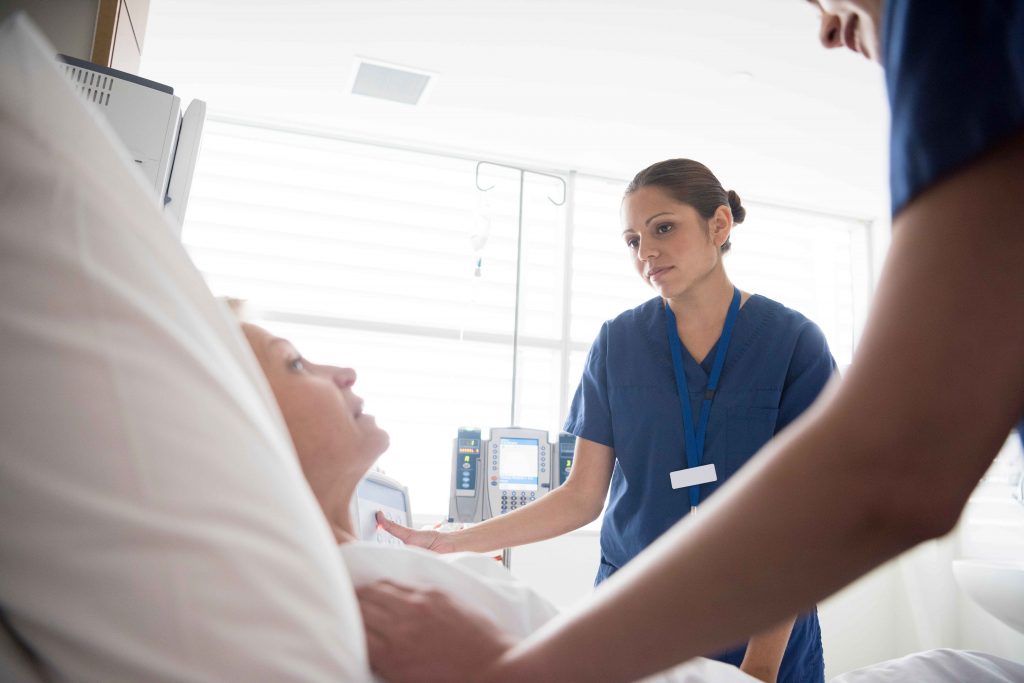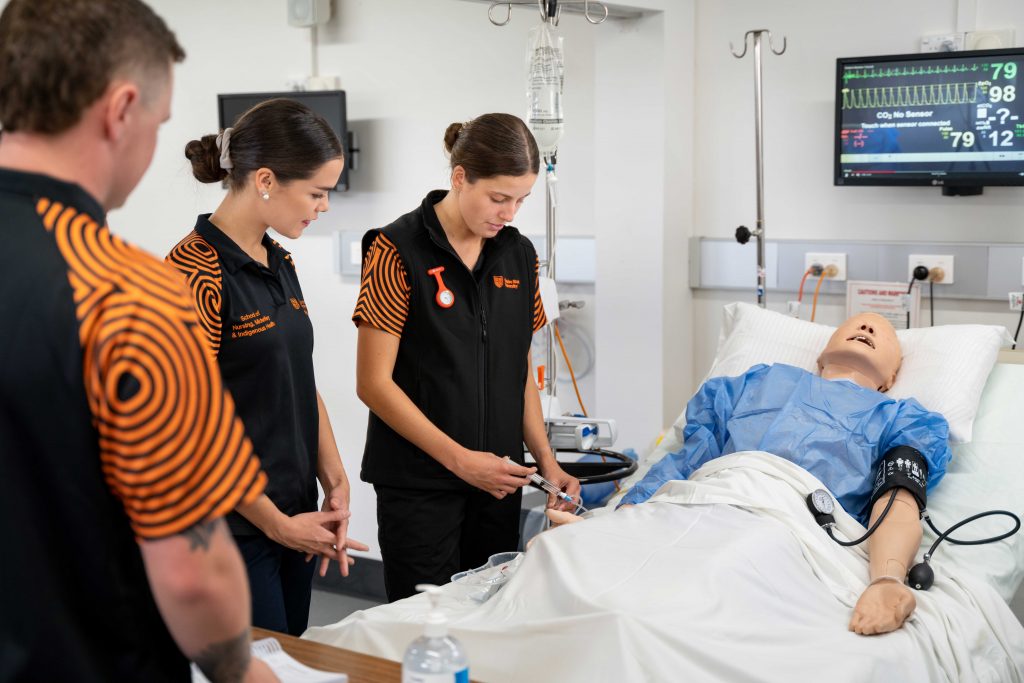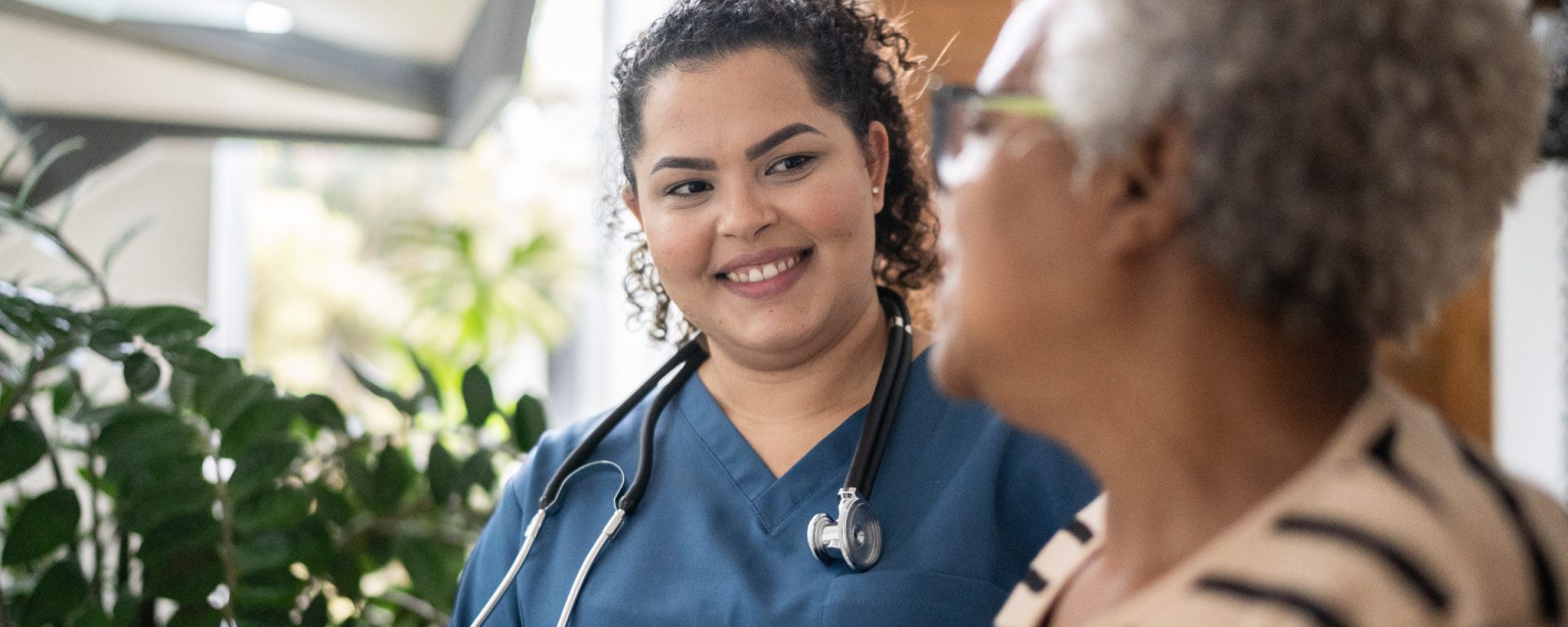Two essential roles in healthcare delivery in Australia. Two nursing roles that ensure the very best in healthcare. Two careers that offer unique rewards and challenges. In Australia, enrolled nurses and registered nurses complete different types of studies. But the two align seamlessly, so if you want to make the move from enrolled nurse to registered nurse, you can. And we can help make it happen.
What is an enrolled nurse (EN)?
They are the professionals who undertake a broad range of tasks to provide person-centred care in healthcare settings. As an enrolled nurse, you will gather vital information by recording patients’ temperature, pulse, blood pressure and respiration. You’ll provide interventions, treatments and therapies when patients require them, such as administering medicines. And you’ll work with people to understand and manage their health conditions. As an EN you could work in a range of healthcare settings, including acute care, aged care, community health, rehabilitation and mental health.

How do you become an EN?
To start your career in nursing as an EN, you need to complete a Diploma of Nursing. This is a vocational qualification that you study at a registered training organisation, such as TAFE. You’ll learn all the fundamental knowledge required in nursing – from anatomy and physiology to infection control and techniques for administering medicine – and undertake 400 hours of work placement to put your learning into action, in real clinical settings. Generally, it takes between 18 months and two years of full-time study to complete. Once you’ve graduated, you apply to the Australian Health Regulation Agency for registration to enable you to practice.
Did you know?
You can work up to your Diploma of Nursing and become an enrolled nurse
by first completing a Certificate III in Health Services Assistance at TAFE and
become an assistant in nursing (AIN). Becoming an AIN can be your first step
in your nursing career.
So, in this pathway, your journey to become an RN could be:
- Certificate III in Health Services Assistance – at TAFE or an RTO
- Diploma of Nursing – at TAFE or an RTO
- Bachelor of Nursing – at Charles Sturt
What is a registered nurse (RN)?
They assess, plan, deliver and evaluate care for people with acute, chronic and complex health conditions. That means everything from devising a treatment plan to overseeing its delivery. Part of that is supervising enrolled nurses and nursing assistants. As an RN, you could work in public and private healthcare facilities, community health centres, Defence forces, primary and secondary industries, insurance, justice health, mental health and workplace health and safety. What’s more, you’ll have lots of opportunity because, according to the Australian government, there will be high future demand for nurses.
How do you become an RN?
To become an RN, you need to complete a three-year bachelor’s degree. Like Charles Sturt’s Bachelor of Nursing.1 This course is accredited by the Australian Nursing and Midwifery Accreditation Council, so you know you’re getting all the skills and knowledge you need to meet industry standards and gain registration as an RN. It’s a thorough grounding in nursing theory, techniques and practice. And you complete 800 hours of work-integrated learning (previously called workplace learning) across an exciting range of authentic healthcare settings. The course take three years of full-time study (or part-time equivalent). When you graduate, you’ll be ready to apply for registration with the Australian Health Practitioner Registration Agency as a registered nurse.
You can go straight into the Bachelor of Nursing. If you’re finishing high school and hit the required selection rank (and any other entry criteria), you’ll receive an offer to study with us. You might also secure a spot before you sit your exams, based on your soft skills – via the Charles Sturt Advantage program.

From enrolled nurse to registered nurse
You can also enter the Bachelor of Nursing as an EN.
And here’s the even better news: you’ll receive credit for your Diploma of Nursing.
That’s right. We value your experience and the effort you’ve already put into the nursing profession. So when you apply, we’ll look at your studies and experience, and assign credit towards the Bachelor of Nursing – meaning you can finish your degree in just two years instead of three. We also have lots of financial assistance options to help you cover the cost of study.
What’s the next step after becoming a registered nurse?
Once you become an RN, you can start practising across a range of clinical settings, from hospitals to community healthcare facilities. But your journey doesn’t have to stop there. You can undertake specialised study to broaden your nursing skill set and move into specialised roles. For example, we have four graduate certificates designed for registered nurses to take their learning to the next level: aged care, clinical education, leadership and management, or rural and remote nursing.
Did you know? We have strong links with the Western NSW, Far West, Murrumbidgee and Mid-North Coast Local Health Districts of New South Wales. So you get to undertake placements in regional Australia, making connections for a career serving rural and remote communities. It's just one of the benefits of studying with Australia's largest regional university.
You can complete one of these graduate certificates in as little as eight months of part-time study. They are 100 per cent online, so you can upskill while you work. Plus, we offer Commonwealth supported places, so you can save on your fees.
Another option after to change your career is to become a midwife with our Graduate Diploma of Midwifery.
Talk to us about your next move
At Charles Sturt, we’re proud to say that we have more than 40 years of experience delivering top-notch nursing education. So wherever you are in your journey to becoming a registered nurse, chat to our team of uni advisers and we’ll help you take the next step.
1CRICOS: 0101019, 010599C



You must be logged in to post a comment.